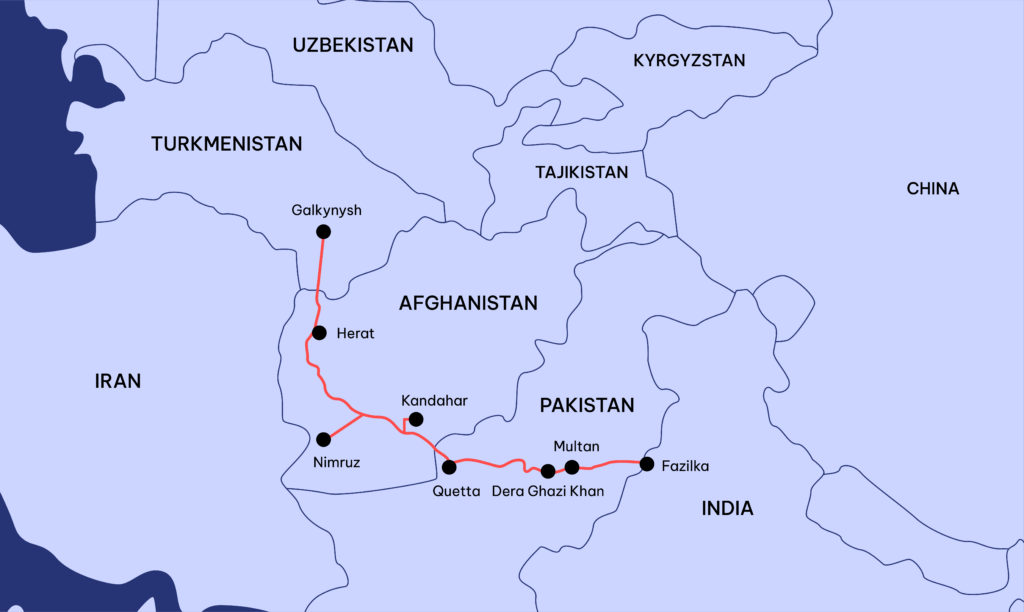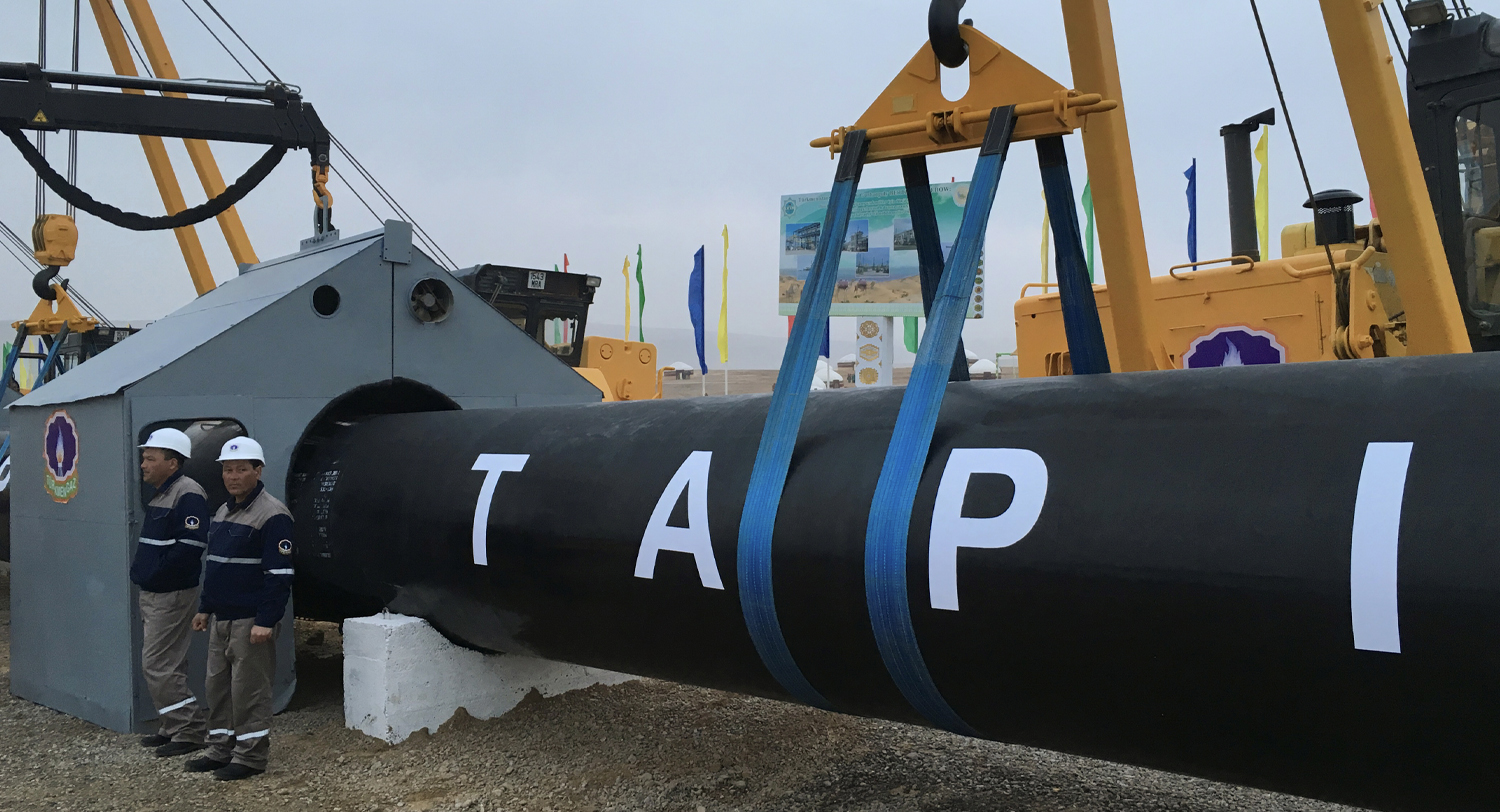It’s time to go big in Central Asia. The Turkmenistan-Afghanistan-Pakistan-India gas pipeline holds promise to reshape Central and South Asia for decades to come. For the United States, linking Turkmenistan’s vast gas reserves to the growing energy needs of South Asia is imperative to counter Russian and Chinese influence. For over 30 years, this gas pipeline has lingered as an aspirational goal. Despite progress in fits and starts, geopolitical distrust and regional tensions have consistently stifled momentum. The geopolitical complexities require that either the US or China convene and catalyze it. The United States should lead this Trump legacy-worthy project.
The biggest obstacle to TAPI in the short to medium term is Pakistani cooperation. President Trump should use his influence to ensure that Pakistan completes its part of the project and finishes its part of the project before President Trump leaves office.
Ambassador Sergio Gor, who enjoys the trust of both President Trump and key regional leaders, is ideally positioned to advance this agenda as Ambassador to India and Special Envoy for South and Central Asia. His leadership could convene the necessary coalition—Turkmenistan, Pakistan, Qatar, and the private sector—to deliver on the pipeline’s long-deferred promise. In his role as US Ambassador to India he could also work to move India towards acceptance of the project it should not be held up until then. On other words, the “TAP” in “TAPI” should proceed now.
US-Pakistan relations are now the strongest they have been in fifteen years and the US should “make hay while the sun is shining.” In addition, President Trump signed a series of agreements with Central Asian nations, expanding American influence, along with new minerals framework agreements with Pakistan. The US should use its new influence with Pakistan to start construction.

The idea dates back to the mid-1990s, when U.S. energy firm Unocal, with the support of the Clinton administration, pursued a “Trans-Afghanistan Pipeline” to move Central Asian gas south. Subsequent administrations later advanced the idea, leading to a 2010 TAPI accord backed by the Asian Development Bank. Turkmenistan broke ground in 2015 and completed most of its pipeline, but Afghanistan and Pakistan have made minimal progress. India’s participation remains on hold. Once the other sections are built, India will want to join at some point in the future.
Turkmenistan holds the world’s fifth-largest natural gas reserves—roughly 400 trillion cubic feet. This gas is critically needed to power mining and metal processing in Uzbekistan and Pakistan, as well as to support the region’s industrial and digital growth. Completing the 1,800-kilometer pipeline is estimated to cost around $10 billion, but the potential returns are far greater: energy independence from Russia, new revenue for Turkmenistan, and reliable fuel for Pakistan’s rapidly expanding economy.
Pakistan faces severe energy deficits that threaten its industrial base and capacity to participate in the AI and minerals revolutions. Reliable gas from Turkmenistan would cut electricity generation costs and spur new investment in energy-intensive industries. The logical first phase is to complete the line from Turkmenistan through Afghanistan into Pakistan over the next 3-5 years, while India’s participation will follow once the pipeline is completed.
Ensuring that American companies benefit as well is vital. Pakistan and Turkmenistan should commit to contractual guarantees to attract American companies to provide services to ensure that the pipeline is built.
The US must insist on robust investor protections for TAPI in Pakistan, akin to the legal guarantees afforded to the Reko Diq mining project. The Reko Diq settlement granted investors legal and fiscal stability guarantees under Pakistan’s new Foreign Investment Protection framework—ensuring protection from expropriation, freedom to repatriate profits, stable tax and regulatory terms, and enforcement of contracts. The precedent set by Pakistan’s 2022 Foreign Investment Protection and Promotion Act (FIPPA) and the Reko Diq mining project’s tax incentives and protections show what foreign investors expect. The pipeline project should benefit from the same “qualified investment” designation as Reko Diq so it too has guarantees and American companies can enter with confidence.
The Trump administration should also press to route the pipeline to a Pakistani port outside of China’s influence. Islamabad should divert critical infrastructure such as the TAPI pipeline away from the Port of Gwadar given the levels of Chinese investment and influence over the port. So long as the Port of Gwadar is locked into a forty-year lease with the state-owned China Overseas Port Holding Company, it remains an unacceptable option. For example, perhaps the Port of Pasni or other alternative ports could offer a terminus less entangled with China’s Belt and Road aspirations.
The situation in Afghanistan remains the project’s greatest challenge. Over 800 kilometers of pipeline must pass through Afghan territory. Any initiative that stimulates economic activity in Afghanistan must be carefully assessed given the country is under the Taliban’s governance. The U.S. does not need to engage directly with or recognize the Taliban. The United States has limited, indirect engagement with the Taliban, largely through humanitarian channels and counter-terrorism cooperation. It is far more important for the U.S. to lead on the Turkmenistan and Pakistan pieces (and possibly the India piece) and have Qatar, the Organization of Islamic Cooperation, or Turkmenistan handle the Afghanistan component.
The transport fees generated by the pipeline 2-4 years from now once operational could be held in a set-aside escrow mechanism, managed by Qatar or a neutral international financial institution and these monies could be directed toward humanitarian purposes via international NGOs — food security among other goals — without channeling funds directly to the Taliban.
The risks of the project, ranging from cross-border skirmishes to political instability, are real. Yet so are the opportunities. Pakistan’s trillion-dollar mineral reserves could make it a global hub for metals processing if it secures sufficient gas and electricity. Turkmen gas could power this industrial surge, turning Pakistan into a competitive alternative to China for global mineral and materials supply chains. With reliable energy, Pakistan’s GDP per capita could triple over the next two decades.
If the United States takes swift, strategic action—facilitating cooperation, securing investments, and asserting leadership—this ambitious pipeline can become a reality, vouchsafing economic growth, energy security, and geopolitical stability to one of the world’s most pivotal regions.



